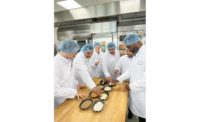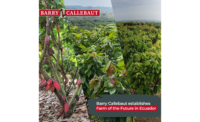German flour treatment provider Mühlenchemie has established an award for research into composite flour. This promotion award recognizes solutions around the production and processing of non-wheat flours and their blends with wheat flour, in particular those using local raw materials.
Geopolitical, climatic and economic conditions are putting increasing pressure on the global wheat market. Fluctuating availability and sharply rising wheat prices are endangering food supplies for more and more people. In order for flour as a food staple to continue to be available in good quality at prices everyone can afford, going forward it will more important than ever to be independent of wheat and global markets. One way to achieve this is to use alternatives to wheat flour.
The new “Composite Flour Science Award” honors innovative work on these challenges and on solutions for the milling, baking and pasta industries. The total prize amount is €10,000. Awardees will receive €5,000, €3,000 and €2,000 for first, second and third place.
Flour treatment specialist Mühlenchemie has for years developed ways to partially or completely replace wheat flour with non-wheat flours. However, in other areas of wheat substitution there is a lack of background knowledge. In particular, questions remain open with regard to the cultivation and processing of various wheat alternatives, such as:
- What local crops have the ecological, economic and technical potential to partially or completely replace wheat in bread and pasta;
- How sustainable their production is, and how they need to be processed in order to be useful for bakers and pasta-makers;
- How they can be standardized;
- How they affect production processes and final product quality;
- What nutritional effects this has;
- What new product developments are possible with composite flour.
The award is for completed scientific studies and practice-focused projects from 2019 to 2022. Mühlenchemie invites all interested parties, institutes and research companies to submit single-page summaries of their studies by January 31, 2023. An international expert jury will review these, select the most promising ones, and then request detailed descriptions of the shortlisted studies.




